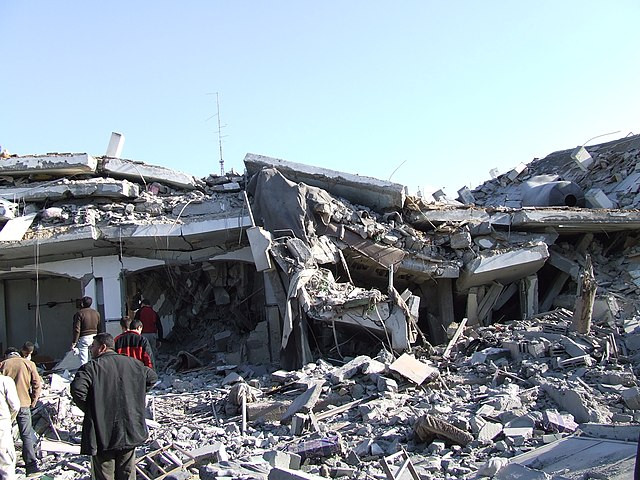An Israeli airstrike on Thursday targeted a school-turned-shelter in Deir al-Balah, central Gaza, killing at least 28 people and injuring more than 50 others, according to the Palestine Red Crescent Society. The Rafidah school had been sheltering displaced Palestinians when the strike hit, leading to devastating scenes of chaos and destruction.
The Israeli military claimed responsibility for the attack, stating it targeted a "command and control center" operated by terrorists within the school compound. "Numerous steps were taken to protect civilians," the military said in a statement. However, the legitimacy of these claims could not be independently verified, and the incident has drawn widespread condemnation.
Graphic images from the scene depicted children being rushed to ambulances, some severely injured and covered in blood. In one heartbreaking scene, a young girl, covered in burns, asked medical staff at Al-Aqsa Martyrs Hospital, "Am I going to die? What happened?" The harrowing footage showed the remains of the school in ruins, with survivors desperately searching through the rubble for their loved ones.
Ayman Abou Khousa, one of the displaced Palestinians who had sought refuge at the school, described the attack as a "complete surprise," adding that he was still searching for his relatives among the debris. "We are dying every day," he told reporters, expressing his frustration with what he called the world's indifference to their plight. "The world has sold us out," he said. "Every day, you come here and film us. You've been filming us for a year."
Another survivor, Iftekhar Hammouda, who had also taken shelter at the school, expressed her disbelief and anguish over the strike. "Why are they hitting the school? It is all displaced people, mostly women," she said, denying that Hamas was present in the area. "Where can people go? Where do they flee? They hit us at our homes, at our tents, on the streets, and at the schools."
Thursday's incident is not the first time an Israeli airstrike has hit a civilian area in Gaza. Last month, another strike on a school compound near Gaza City killed at least 22 people, mostly women and children. In August, a strike on a school and mosque in Al-Tabi'in compound in Gaza City's Al-Daraj neighborhood claimed over 90 lives. Israel has consistently maintained that its military operations are aimed at targeting Hamas fighters, accusing the militant group of using civilian infrastructure to shield its activities.
The recent escalation in Gaza comes as Israeli forces continue their ground offensive in other parts of the territory. The Israeli military reported that they killed at least 12 Hamas and Islamic Jihad militants operating from a former medical compound in Jabalia. The military's ongoing operations are part of a broader strategy to weaken Hamas's ability to regroup and launch attacks.
Meanwhile, the humanitarian crisis in Gaza worsens as Israel's military actions have led to the displacement of over a million people. The United Nations has called for a ceasefire, urging both sides to protect civilians and facilitate humanitarian access. "Hundreds of thousands of people are again being pushed to move to the south, where living conditions are intolerable," said Philippe Lazzarini, head of the U.N. Palestinian refugee agency UNRWA, during a recent U.N. Security Council meeting.
The Palestinian health ministry reported that more than 42,000 people have been killed in Gaza since the conflict intensified a year ago following the Hamas-led attacks on Israel in October 2023. The toll continues to rise as Israeli forces expand their operations into Lebanon and weigh the possibility of a broader regional conflict involving Iran.
Hospitals in northern Gaza face additional challenges as Israeli forces issued evacuation orders to medical facilities, including the Indonesian, Al-Awda, and Kamal Adwan hospitals. Health officials warn that forced evacuations could put the lives of critically ill patients, especially children, at immediate risk. Hussam Abu Safiya, director of Kamal Adwan Hospital, emphasized the urgent need for international intervention to allow medical staff to continue their work. "Our message is a message of peace for the sake of those children," Abu Safiya said.




